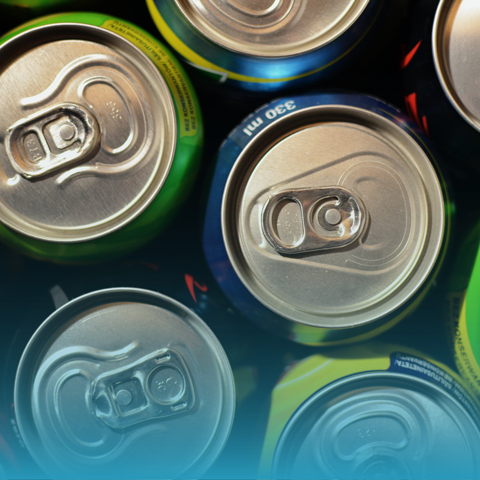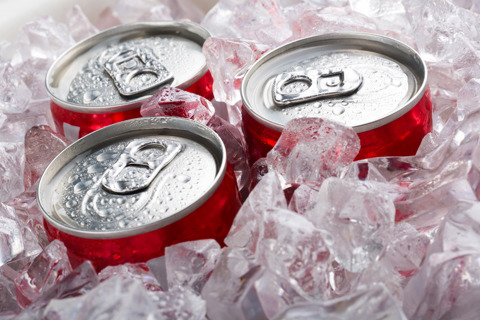
Wake-up call needed to reduce childhood obesity – concern that sugar tax targets behind schedule
Public Health England reports sugar reduction in food production, but more to be done to meet anti-obesity targets.
A new report on progress made by the food industry to voluntarily reduce sugar in everyday foods has reported some “encouraging progress”.
The recently published second-year Public Health England (PHE) report shows the sugar reduction achieved by retailers and manufacturers (in home sector) and the out of home sector (including restaurants, pubs and cafes) in foods contributing the most sugar to children’s diets, such as cakes, breakfast cereals and sweets.
However, figures in the report reveal that the amount of sugar in foods bought at the supermarket has increased from 723,000 tonnes in 2015 to 743,000 tonnes in 2018 - the equivalent of everybody increasing their sugar consumption by 0.5%, according to Public Health England.
Using figures from the Soft Drinks Industry Levy, or sugar tax, revealed a 28.8% reduction per 100ml in retailer own-brand and manufacturer-branded products.
The sugar tax was introduced in the UK in April 2018 and charges manufacturers 24p per litre on high-sugar drinks and 18p per litre on medium-sugar ones – with the aim to prevent young people becoming overweight and at risk of developing related health conditions, including type 2 diabetes.
Brands including Fanta, Ribena and Irn Bru changed their recipes in response and on average, 100mls of sugary drinks now contain 28.8% less sugar than in 2015.
In addition, for retailers and manufacturers, there is an overall 2.9% reduction (sales weighted average sugar per 100g) since 2015.

While, for the out of home sector, based on more limited data, there is a 4.9% reduction (simple average sugar per 100g)
However, some food categories have shown greater progress. Retailer own brand and manufacturer branded yoghurts and fromage frais, and breakfast cereals have reduced sugar by 10.3% and 8.5% respectively.
When looking at simple average sugar levels, data suggests that the out of home sector has made more progress; however direct comparisons should not be made due to the data available.
The report also found that there was a consumer shift towards zero or lower sugar products, with sugar purchased from soft drinks decreasing in all socio-economic groups.
In addition, 30,133 tonnes of sugar were removed without reducing soft drink sales, resulting in around 37.5 billion fewer kilocalories sold in sugary drinks each year
Duncan Selbie, Chief Executive of Public Health England, said: “We are seeing some encouraging progress from the food industry. Our second year report shows some food
categories reducing sugar faster than others but this is realistic at this early stage.
“We are confident that the industry as a whole understands their responsibility to step up and deliver for children and their families.”
A third of children leave primary school overweight or obese, while severe obesity in Year 6 children has now reached an all-time high.
To help them play their part in addressing this, businesses have three options to meet the 20% ambition: reduce sugar levels (reformulation), produce smaller portions, or encourage consumers to purchase lower or no sugar products.
In response to the report, Professor Russell Viner, President of the Royal College of Paediatrics and Child Health, said: “Today’s findings are a mixed bag. The soft drinks levy is a success story and shows that government can make a significant difference when it compels the food industry to act in the interests of child health.
“On the other hand - the results of the voluntary sugar reduction programme reveal the limits of self-regulation. While there are pockets of progress, industry is largely asleep at the wheel. It is time for a wake-up call. One in three children are overweight or obese by age 11 and the food industry has a major role to play in helping us turn this around.
“If industry fails to act for child health, then we look forward to the introduction of mandatory sugar reduction targets in 2020.”
Read the Public Health England report
Support DRWF by making a donation here
Find out more about DRWF-funded research here
Find out more about DRWF fundraising here
For latest update follow DRWF on Facebook, Instagram and Twitter
To receive the charity’s latest bulletins as they become available, please sign up here
Read DRWF diabetes information leaflets here
Join the Diabetes Wellness Network here
I would like to make a regular donation of
I would like to make a single donation of
There are lots of ways to raise money to support
people living with all forms of diabetes.
Bake, Swim, Cycle, Fly ... Do It For DRWF!
Fundraise with us
Recent News


